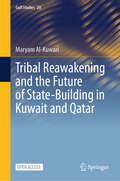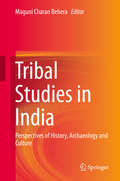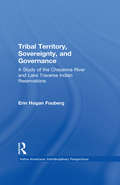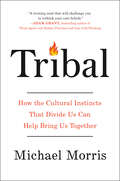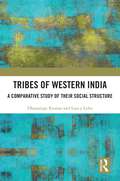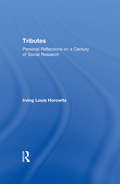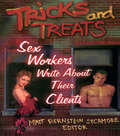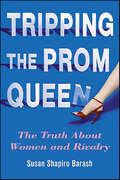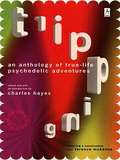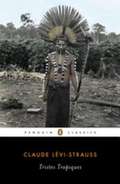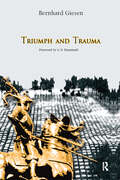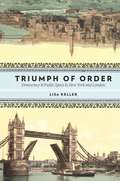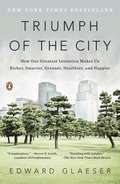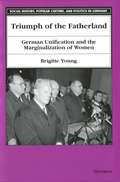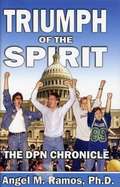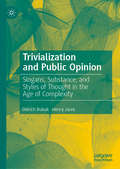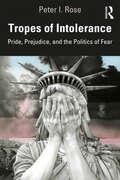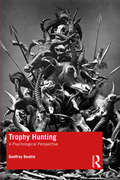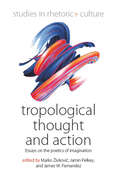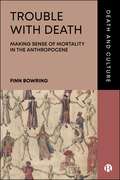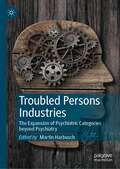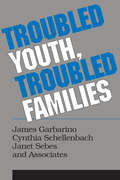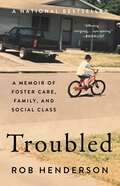- Table View
- List View
Tribal Reawakening and the Future of State-Building in Kuwait and Qatar (Gulf Studies #20)
by Maryam Al-KuwariThis open access book approaches the history of tribes and their role in the formation of the modern states of Kuwait and Qatar by blending historical, political, and sociological perspectives. Traditionally, this subject has been approached from single perspective, often picturing the tribe as a political and social entity that is opposed to the modern state. In the Gulf context, presenting and discussing the case studies of Kuwait and Qatar aims at revealing that the tribe played a salient role in the formation of the modern state in these two countries as well as in nation building, both before the oil era and even after independence. Moreover, the book bridges an important gap that is often overlooked in GCC studies which explains how the tribe suddenly became a controversial factor in Gulf states and societies. The book elaborates on tracing the roots of this transformation and in evaluating the role played by the state as it attempted to manipulate tribes to achieve political and other advantages, only to trigger the rise of tribalism as a social and at times political force that undermines the legitimacy of the state. The book also highlights the impacts of this transformation, not only on the state, but also on society as a whole, with special emphasis on women in Kuwait and Qatar. It is relevant to scholars and advanced students in areas of political sociology, identify and gender, comparative politics, and for social scientists more broadly with a specific interest in the Middle East.
Tribal Studies in India: Perspectives of History, Archaeology and Culture
by Maguni Charan BeheraThis book provides comprehensive information on enlargement of methodological and empirical choices in a multidisciplinary perspective by breaking down the monopoly of possessing tribal studies in the confinement of conventional disciplinary boundaries. Focusing on anyone of the core themes of history, archaeology or anthropology, the chapters are suggestive of grand theories of tribal interaction over time and space within a frame of composite understanding of human civilization. With distinct cross-disciplinary analytical frames, the chapters maximize reader insights into the emerging trend of perspective shifts in tribal studies, thus mapping multi-dimensional growth of knowledge in the field and providing a road-map of empirical and theoretical understanding of tribal issues in contemporary academics. This book will be useful for researchers and scholars of anthropology, ethnohistory ethnoarchaeology and of allied subjects like sociology, social work, geography who are interested in tribal studies. Finally, the book can also prove useful to policy makers to better understand the historical context of tribal societies for whom new policies are being created and implemented.
Tribal Territory, Sovereignty, and Governance: A Study of the Cheyenne River and Lake Traverse Indian Reservations (Native Americans: Interdisciplinary Perspectives)
by Erin FoubergThe author explores how tribal governments have worked through the constraints of their eroded territory and sovereignty to provide effective leadership and governance.
Tribal: How the Cultural Instincts That Divide Us Can Help Bring Us Together
by Michael MorrisSHORTLISTED FOR THE FINANCIAL TIMES AND SCHRODERS BUSINESS BOOK OF THE YEAR A revelatory, paradigm-shifting work from a renowned Columbia professor and &“one of the great social and cultural psychologists&” (Amy Cuddy) that demystifies our tribal instincts and shows us how to use them to create positive change.Tribalism is our most misunderstood buzzword. We&’ve all heard pundits bemoan its rise, and it&’s been blamed for everything from political polarization to workplace discrimination. But as acclaimed cultural psychologist and Columbia professor Michael Morris argues, our tribal instincts are humanity&’s secret weapon. Ours is the only species that lives in tribes: groups glued together by their distinctive cultures that can grow to a scale far beyond clans and bands. Morris argues that our psychology is wired by evolution in three distinctive ways. First, the peer instinct to conform to what most people do. Second, the hero instinct to give to the group and emulate the most respected. And third, the ancestor instinct to follow the ways of prior generations. These tribal instincts enable us to share knowledge and goals and work as a team to transmit the accumulated pool of cultural knowledge onward to the next generation. Countries, churches, political parties, and companies are tribes, and tribal instincts explain our loyalties to them and the hidden ways that they affect our thoughts, actions, and identities. Rather than deriding tribal impulses for their irrationality, we can recognize them as powerful levers that elevate performance, heal rifts, and set off shockwaves of cultural change.Weaving together deep research, current and historical events, and stories from business and politics, Morris cuts across conventional wisdom to completely reframe how we think about our tribes. Bracing and hopeful, Tribal unlocks the deepest secrets of our psychology and gives us the tools to manage our misunderstood superpower.
Tribes of Western India: A Comparative Study of Their Social Structure
by Dhananjay Kumar Lancy LoboIndia has two key social formations, the castes and the tribes. Both groups can be studied from the perspective of society (samaj) and culture (sanskriti). However, studies on castes largely deal with social structure and less on culture, while studies on tribes focus more on culture than on social structure. What has resulted from this bias is a general misunderstanding that tribes have a rich culture, but lack social structure. This volume emerges out of an in-depth empirical study of the social structure of five Scheduled Tribes (STs) in Gujarat, Western India, viz., Gamit, Vasava, Chaudhari, Kukana, and Warli. It analyses and compares their internal social organization consisting of institutions of household, family, lineage, clan, kinship rules and marriage networks. The book also deals with changes taking place in the social structure of contemporary tribal societies. While the focus is mainly on the data from tribes of Western India, the issues are relevant to pan Indian tribes. An important contribution to the studies on tribes of India, this book will be of great interest to students and researchers of anthropology, sociology, demography, history, tribal studies, social work, public policy, and law. It will also be of interest to professionals working with NGOs and civil society, programme and policy formulating authorities, and bureaucrats.
Tributes: Personal Reflections on a Century of Social Research
by Irving HorowitzIn one of his final works, Stephen Jay Gould spoke of the human race "as a wildly improbable evolutionary event well within the realm of contingency." Drawing on his personal knowledge of fifty figures from the world of twentieth-century social science, Irving Louis Horowitz offers commentaries drawn from a variety of public occasions to explain one segment of this improbable event. In the process he reveals how the past century was defined in substantial measure by the rise of social research.Commenting on Tributes, Daniel Mahoney observes, "some pieces are completely authoritative and detailed, others more conversational and informal. That diversity of approaches tied to the special character of these people increases the readability and interest in the book as a whole. In addition to illuminating the life and thought of these major figures, these essays and addresses reveal the impressive catholicity of Horowitz's concerns and his ability to remain open to the widest range of theoretical and practical approaches." In a certain sense, this book is also an intellectual autobiography in the form of an expression of Horowitz's debt to intellectual interlocutors and influences over the years. As a consequence, Tributes will be of the greatest interest to anyone who wishes to come to terms with the intellectual formation of the people who gave substance to new ways of experiencing as well as explaining society. The book is thus a thoughtful guide to the intellectual life of our times.From Arendt and Aron to Veblen and Wildavsky, these essays take shape as a systematic mosaic of the past century. Written by a central participant in social theory, Tributes is both an informal guide and a formal text for readers coming upon social science innovators for the first time. The book breaks the boundaries of conventional discourse and in so doing gives voice to the outstanding figures that helped make the twentieth century "the century of social research."
Tricks and Treats: Sex Workers Write About Their Clients
by Matt Bernstein SycamoreLearn about the real lives of sex workers by exploring the sex industry from the inside!Explore the insightful--and oftentimes intense--accounts of sex workers who look squarely into the eyes of their clients, the sex industry, and society as a whole. Tricks and Treats delivers private stories about homo- and heterosexual encounters that sex workers usually confide only in each other. Not another “why I became a prostitute” book, it provocatively turns the tables on the buyers of sex, giving you a window into sex workers’lives. Tricks and Treats gives you straightforward accounts by sex workers to help you understand the pleasures, attractions, and truths of this profession. Tricks and Treats tantalizes with its powerful collection of tales from a diverse group of male, female, and transgendered sex workers. Their commercial, cultural, emotional, sexual, (il)legal, and even spiritual relationships with their clients are discussed in intimate detail. You will explore accounts from streetworkers, escorts, strippers, porn actors, masseurs, dominatrixes, phone sex operators, an adult-video store clerk, an outreach worker, a sex educator, and even a sperm donor.Tricks and Treats will ignite your imagination and answer questions few people dare to ask. You'll learn firsthand, of: how male, female, and transgendered hustlers turn tricks--in their own words--from sado-masochism and watersports to stripping, scat, foreplay, and fisting how sex workers face their own mortality when confronted with the AIDS virus a porn star's compassion and understanding for her fans a sex worker's coming-to-terms with his/her transgendered identity a male escort's attempts at dating a young man's experience of finding a family and home when living at a brothel a woman's story of spending thirty years as a prostitute the experiences of hooking on the streets and in clubs, cafes, and homesThese engaging and shocking testimonials will entertain you and offer a unique understanding of the sex industry. Revealing and intriguing, these poignant talks will certainly not disappoint your imagination. Tricks and Treats is a testament to the lives of sex workers, a manifestation of their spirit, and gives them a chance to turn the tables on their clients, exposing their erotic tastes, turn-ons, and fantasies.
Tripping the Prom Queen: The Truth About Women and Rivalry
by Susan Shapiro BarashA professor of critical thinking and gender studies presents a groundbreaking investigation into the dark secret of female friendship: rivalry.Susan Shapiro Barash has exploded the myth that women help one another, are supportive of one another, and want each other to succeed. Based on interviews with women across a broad social spectrum, she has discovered that the competition between women is more vicious precisely because it is covert. She tells us:Why women can't and won't admit to rivalry.How women are trained from an early age to compete with one another.In which areas women most heatedly compete.How rivalry is different among women than among men.The differences between competition, envy, and jealousy.When competition is healthy and when it isn't.Why women find it irresistible to “trip the prom queen.”Useful strategies to stop the competition and forge a new kind of relationship with other women.Whether you've tripped the prom queen or been tripped yourself, you will discover an engrossing exploration of this female phenomenon, as well as a beacon of hope for better, more fulfilling relationships.“Tripping the Prom Queen is a must read for women who want to reach their full individual potential and form strong relationships with friends, family, and work colleagues. Although it pulls no punches in the ways women can be their own worst enemies, it also shows a way out for any woman wanting to improve her sense of self and her experiences with others.” —Rosalind Wiseman, New York Times–bestselling author of Queen Bees and Wannabees
Tripping: An Anthology of True-Life Psychedelic Adventures
by Charles HayesTaking a balanced, objective approach, the book depicts a broad spectrum of altered states, from the sublime to the terrifying.<P><P> Included are fifty narratives about unforgettable psychedelic experiences from an international array of subjects representing all walks of life.
Tristes Tropiques (Modern Library Ser.)
by Claude Levi-Strauss John Weightman Doreen Weightman Patrick Wilcken"A magical masterpiece."-Robert Ardrey. A chronicle of the author's search for a civilization "reduced to its most basic expression."
Triumph and Trauma
by Bernhard Giesen S. N. EisenstadtThis book deals with triumphant and tragic heroes, with victims and perpetrators as archetypes of the Western imagination. A major recent change in Western societies is that memories of triumphant heroism-for example, the revolutionary uprising of the people-are increasingly replaced by the public remembrance of collective trauma of genocide, slavery and expulsion. The first part of the book deals with the heroes and victims and explores the social construction of charisma and its inevitable decay. Part 2 focuses on a paradigm case of the collective trauma of perpetrators: German national identity between 1945 and 2000. After a time of latency, the legacy of nationalistic trauma was addressed in a public conflict between generations. The conflict took center stage in vivid public debates and became a core element of Germany's official political culture. Today public confessions of the guilt of the past have spread beyond the German case. They are part of a new post-utopian pattern of collective identity in a globalised setting.
Triumph of Order: Democracy and Public Space in New York and London (Columbia History of Urban Life)
by Lisa KellerIn an effort to create a secure urban environment in which residents can work, live, and prosper with minimal disruption, New York and London established a network of laws, policing, and municipal government in the nineteenth century aimed at building the confidence of the citizenry and creating stability for economic growth. At the same time, these two world cities attempted to maintain an expansive level of free speech and assembly, concepts deeply ingrained in both national cultures. As democracy expanded in tandem with the size of the cities themselves, the two goals clashed, resulting in tensions over their compatibility. The results of this clash continue to resonate in our society today. Treating nineteenth-century London and New York as case studies, Lisa Keller examines the critical development of sanctioned free speech, controlled public assembly, new urban regulations, and the quelling of riots, all in the name of a proper regard for order. Drawing on rich archival sources that include the unpublished correspondence of government officials and ordinary citizens, Keller paints an intimate portrait of daily life in these two cities and the intricacies of their emerging bureaucracies. She finds that New York eventually settled on a policy of preempting disruption before it occurred, while London chose a path of greater tolerance toward street activities. Dividing her history into five categories-cities, police and militia, the public, free speech and assembly, and the law-Keller concludes with an assessment of freedom in these cities today and asks whether the scales have been tipped too strongly on the side of order and control. Public officials increasingly use permits, fees, and bureaucratic hassles to frustrate the ability of reformers and protesters to make their voices heard, and by doing so, she argues, they strike at the very foundations of democracy.
Triumph of the City
by Edward GlaeserUnderstanding the modern city and the powerful forces within it is the life's work of Harvard urban economist Edward Glaeser, who at forty is hailed as one of the world's most exciting urban thinkers. Travelling from city to city, speaking to planners and politicians across the world, he uncovers questions large and small whose answers are both counterintuitive and deeply significant. Should New Orleans be rebuilt? Why can't my nephew afford an apartment in New York? Is London the new financial capital of the world? Is my job headed to Bangalore? In Triumph of the City, Glaeser takes us around the world and into the mind of the modern city - from Mumbai to Paris to Rio to Detroit to Shanghai, and to any number of points in between - to reveal how cities think, why they behave in the manners that they do, and what wisdom they share with the people who inhabit them. 'A masterpiece' Steven D. Levitt, co-author of Freakonomics 'A brilliant read: persuasive and provocative' Time Out 'Replete with lightly borne learning, this is a tremendous book' Bryan Appleyard, Literary Review 'Fascinating' Sunday Telegraph 'Comprehensive, compelling and strongly recommended" Tim Harford, author of The Undercover Economist and Adapt 'A hymn to the city' Metro
Triumph of the Fatherland
by Brigitte YoungThe East German uprising of 1989 was not a male revolution. Indeed, one of the most significant aspects of the fall of East Germany, compared to that of other East European nations, was the presence of women demanding a political role in the newly emerging social order. As one slogan proclaimed, "Without Women There Is No State. " Yet despite the determination of these women--and of West German feminist groups--to help shape the future of the German state, their influence remained, in the end, very limited. InTriumph of the Fatherland, political scientist Brigitte Young draws on in-depth interviews, archival sources, newspapers, and her own observations from 1989 to 1991 to study the goals, strategies, and eventual fate of the German women's movements during this tumultuous period. Young focuses on the relationship between the state and its citizenry, outlining the mobilization of women in four states: the East German and West German states before unification; the "stateless state" in East Germany after the collapse of the Wall, and the West German state during unification. Ultimately she finds that the political opportunity structures opened during the "stateless state" closed again with unification, resulting in what Young calls "double gender marginalization. " Brigitte Young is Associate Professor, Department of Political Science, Otto-Suhr-Institute, Free University Berlin, Germany.
Triumph of the Spirit: The DPN Chronicle
by Angel M. RamosIn 1988 the world's only deaf liberal arts university, Gallaudet University in Washington, D.C. was ready for its next president. The Board of Trustees chose a hearing president who knew nothing about deafness. Unrest had been building on campus over this possibility, especially as there were highly qualified Deaf applicants. When the hearing person was selected and announced, the students exploded in protest. The next 7 days were covered by the national and international news media. What happened at Gallaudet had enormous worldwide impact. Since that protest, Deaf people have proudly advanced in all occupations. The DPN Movement has been likened to a civil rights movement for Deaf people. The author, Angel Ramos, PhD., was directly involved in the protest. Note: all spelling errors were in the print text.
Trivialization and Public Opinion: Slogans, Substance, and Styles of Thought in the Age of Complexity
by Oldrich Bubak Henry JacekCentering on public discourse and its fundamental lapses, this book takes a unique look at key barriers to social and political advancement in the information age. Public discourse is replete with confident, easy to manage claims, intuitions, and other shortcuts; outstanding of these is trivialization, the trend to distill multifaceted dilemmas to binary choices, neglect the big picture, gloss over alternatives, or filter reality through a lens of convenience—leaving little room for nuance and hence debate. Far from superficial, such lapses are symptoms of deeper, intrinsically connected shortcomings inviting further attention. Focusing primarily on industrialized democracies, the authors take their readers on a transdisciplinary journey into the world of trivialization, engaging as they do so the intricate issues borne of a modern environment both enabled and constrained by technology. Ultimately, the authors elaborate upon the emerging counterweights to conventional worldviews and the paradigmatic alternatives that promise to help open new avenues for progress.
Tropes of Intolerance: Pride, Prejudice, and the Politics of Fear
by Peter I. RoseTropes of Intolerance is a Baedeker of bigotry, a short course on xenophobic racism and populist nationalism – both enduring threats to the social fabric of democratic societies. Each chapter is a self-contained commentary and a building block. In the first, the author considers the concepts of pride and prejudice and discusses patterns of discrimination and strategies of resistance. This is following by an illustrated consideration of the emblems of enmity – words, signs, symbols and other verbal and visual expressions of both chauvinism and intolerance. Linking the first two, the third chapter explores the nature of American Nativism and its contemporary expression. This is followed by an assessment of the exploitation of anxiety among particularly vulnerable sectors of society by skillful, manipulative leaders and their agents and the exacerbation of social divisions by the use of stereotyping, stigmatizing, and labeling. Chapter Five, "Trumped Up," narrows the focus to the present day, the president himself, and his exacerbation of polarizing particularism. A sixth chapter examines two of the most malignant ideologies -- resurgent anti-Semitism and the rise of Islamophobia -- bringing readers full circle. In addition to a brief Coda and a glossary of key terms related to the principal topic, there is a post-election Afterword written in late November, 2020.
Trophy Hunting: A Psychological Perspective
by Geoffrey BeattieThis book explores the psychology of trophy hunting from a critical perspective and considers the reasons why some people engage in the controversial activity of killing often endangered animals for sport. Recent highly charged debate, reaching a peak with the killing of Cecil the lion in 2015, has brought trophy hunting under unprecedented public scrutiny, and yet the psychology of trophy hunting crucially remains under-explored. Considering all related issues from the evolutionary perspective and ‘inclusive fitness’, to personality and individual factors like narcissism, empathy, and the Duchenne smiles of hunters posing with their prey, Professor Beattie makes connections between a variety of indicators of prestige and dominance, showing how trophy hunting is inherently linked to a desire for status. He argues that we need to identify, analyse and deconstruct the factors that hold the behaviour of trophy hunting in place if we are to understand why it continues, and indeed why it flourishes, in an age of collapsing ecosystems and dwindling species populations. The first book of its kind to examine current research critically to determine whether there really is an evolutionary argument for trophy hunting, and what range of motivations and personality traits may be linked to this activity. This is essential reading for students and academics in psychology, geography, business, environmental studies, animal welfare as well as policy makers and charities in these and related areas. It is of major relevance for anyone who cares about the future of our planet and the species that inhabit it.
Tropological Thought and Action: Essays on the Poetics of Imagination (Studies in Rhetoric and Culture #9)
by Jamin Pelkey Marko Živković James W. FernandezFrom twilight in the Himalayas to dream worlds in the Serbian state, this book provides a unique collection of anthropological and cross-cultural inquiry into the power of rhetorical tropes and their relevance to the formation and analysis of social thought and action through a series of ethnographic essays offering in-depth studies of the human imagination at work and play around the world.
Trost: ein wichtiges Bedürfnis
by Beate von DevivereDas humane Trostbedürfnis wird in diesem Werk als wichtiges und zentrales Bedürfnis des Menschen wissenschaftlich diskutiert und praxisnah aufbereitet, d.h. im Licht neuster Forschungsergebnisse definiert und die Möglichkeiten und Instanzen der Erfüllung dieses ‚archaischen&‘ und unbehausten Grundbedürfnisses in Zeiten der epochalen Herausforderungen und Zukunftsaufgaben dargestellt.
Trouble with Death: Making Sense of Mortality in the Anthropocene (Death and Culture)
by Finn BowringAre we accepting of death, or in denial of it? What insights can we gain from the ways death has been imagined, theorized, and organized throughout Western social and intellectual history that might help us respond meaningfully to the climate emergency? This interdisciplinary study begins with the role of tragedy in Greek antiquity and examines European attitudes toward death, especially their entanglement with colonial atrocities and politically organized killings. Drawing on the work of philosophers, sociologists, historians, and psychoanalysts, this is a resounding call to confront our responsibility for the lives of others—and the future of life itself—amid the existential threats of the Anthropocene.
Troubled Masculinities
by Ken MoffattIn the contemporary urban environment, the once-dominant concept of a 'masculine' identity is being replaced by alternative ideas of what it means to be a man. Troubled Masculinities explores and theorizes the ways in which men who experience marginalization in urban settings reimagine and reconstruct their identities as males.Through personal narratives and assessments of artistic expression, the contributors present critical and inventive views of masculinity and how it is performed and interpreted in urban space. Set against the backdrop of Toronto, the essays engage with the global and transnational processes that affect identity and consider how the social hybridity of large cities allows individuals to work against fundamentalist and essentialist attitudes toward gender.The contributors represent diverse backgrounds, races, ethnicities, sexualities, and gender orientations and they offer unique perspectives on conforming to and breaking away from traditional interpretations of masculinity. The essays in this volume explore the effect of race on one' s own understanding of gender identity, the role of performance and visual art - from screen printing to drag king shows - in challenging hegemonic masculinities, and the impact of space - from bubble tea houses to punk rock clubs - on expressions of masculinity.Troubled Masculinities is an important contribution to the growing field of masculinity studies and a valuable assessment of the nature of gender in a modern Canadian urban setting. The collected essays will appeal to a wide audience, from social scientists and artists to activists and general readers.
Troubled Persons Industries: The Expansion of Psychiatric Categories beyond Psychiatry
by Martin HarbuschThis book critiques the use of psychiatric labelling and psychiatric narratives in everyday areas of institutional and social life across the globe. It engages an interpretive sociology, emphasising the medial and individual everyday practices of medicalisation, and their role in establishing and diffusing conceptions of mental (ab)normality. The reconstruction of psychiatric narratives is currently taking place in multiple contexts, many of which are no longer strictly psychiatric. On the one hand, psychiatric narratives now pervade contemporary public discourses and institutions though advertising, news and internet sites. On the other hand, professionals like social workers, teachers, counsellors, disability advisors, lawyers, nurses and/or health insurance staff dealing with psychiatric narratives are becoming servants of the psychiatric discourse within “troubled person’s industries”. Abstract academic categories get turned into concrete aggrieved victims of these categorisations and academic formulas turned into individual narratives. To receive support it seems, one must be labelled. The practice-oriented micro-sociological field with which this volume is concerned has only recently begun to integrate itself into public and academic debates regarding medicalisation and the social role of psychiatry. Discussions on the evolution and expansion of official diagnoses within academia, and society in general, frequently overlook the individualised roles of psychiatric diagnoses and the experiences of those involved and affected by these processes, an oversight which this volume seeks to both highlight and address.
Troubled Youth, Troubled Families: Understanding Families at Risk for Adolescent Maltreatment
by Cynthia SchellenbachThe 1970s witnessed a growing concern and awareness regarding child abuse, an awareness which gradually extended to include the maltreatment of adolescents. In the 1980s a number of intervention projects dealing with this particular problem were started. Troubled Youth, Troubled Families is one of the first full-length reports to deal with adolescent abuse.
Troubled: A Memoir of Foster Care, Family, and Social Class
by Rob HendersonNATIONAL BESTSELLER One of The Economist&’s Best Books of the Year! In this &“affecting…intriguing…heartbreaking&” (Booklist) coming-of-age memoir, Rob Henderson vividly recounts growing up in foster care, enlisting in the US Air Force, attending elite universities, and pioneering the concept of &“luxury beliefs&”—ideas and opinions that confer status on the upper class while inflicting costs on the less fortunate.Rob Henderson was born to a drug-addicted mother and a father he never met, ultimately shuttling between ten different foster homes in California. When he was adopted into a loving family, he hoped that life would finally be stable and safe. But divorce, tragedy, poverty, and violence marked his adolescent and teen years, propelling Henderson to join the military upon completing high school. A &“vivid, insightful, poignant, and powerful&” (Nicholas A. Christakis, author of Blueprint) portrait of shattered families, desperation, and determination, Troubled recounts Henderson&’s expectation-defying young life and juxtaposes his story with those of his friends who wound up incarcerated or killed. As he navigates the peaks and valleys of social class, Henderson finds that he remains on the outside looking in. His greatest achievements—a military career, an undergraduate education from Yale, a PhD from Cambridge—feel like hollow measures of success. He argues that stability at home is more important than external accomplishments, and he illustrates the ways the most privileged among us benefit from a set of social standards that actively harm the most vulnerable.
